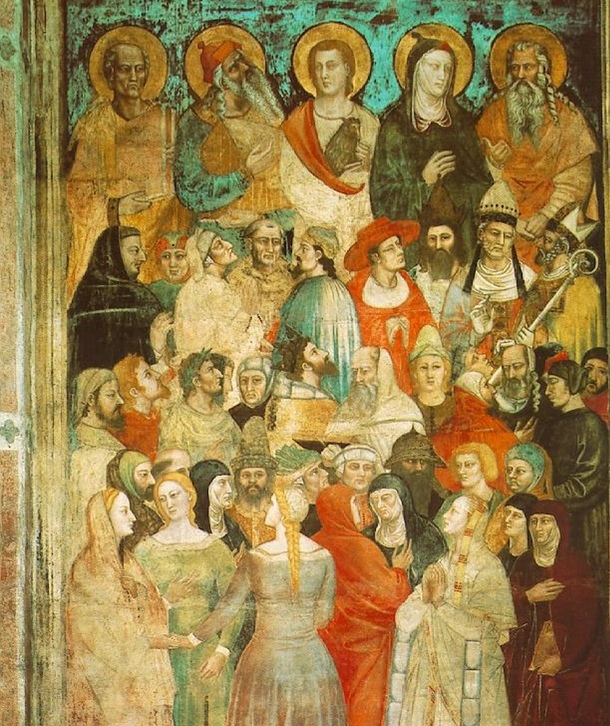
“Maestro, che è quel ch’i’ odo?
e che gent’è che par nel duol sì vinta?”.
Ed elli a me: “Questo misero modo
tegnon l’anime triste di coloro
che visser sanza ‘nfamia e sanza lodo.
Mischiate sono a quel cattivo coro
de li angeli che non furon ribelli
né fur fedeli a Dio, ma per sé fuoro.
Caccianli i ciel per non esser men belli,
né lo profondo inferno li riceve,
ch’alcuna gloria i rei avrebber d’elli”.
E io: “Maestro, che è tanto greve
a lor, che lamentar li fa sì forte?”.
Rispuose: “Dicerolti molto breve.
Questi non hanno speranza di morte
e la lor cieca vita è tanto bassa,
che ‘nvidiosi son d’ogne altra sorte.
Fama di loro il mondo esser non lassa;
misericordia e giustizia li sdegna:
non ragioniam di lor, ma guarda e passa”.
“Master, what is it that I hear? Who are
those people so defeated by their pain?”
And he to me: “This miserable way
is taken by the sorry souls of those
who lived without disgrace and without praise.
They now commingle with the coward angels,
the company of those who were not rebels
nor faithful to their God, but stood apart.
The heavens, that their beauty not be lessened,
have cast them out, nor will deep Hell receive them –
even the wicked cannot glory in them.”
And I: “What is it, master, that oppresses
these souls, compelling them to wail so loud?”
He answered: “I shall tell you in few words.
Those who are here can place no hope in death,
and their blind life is so abject that they
are envious of every other fate.
The world will let no fame of theirs endure;
both justice and compassion must disdain them;
let us not talk of them, but look and pass.”
—Dante Alighieri, Inferno, canto iii (ca. 1317)(C. Langdon transl. 1918)
One of John F. Kennedy’s favorite quotations, which he attributed to Dante, was that “The hottest places in Hell are reserved for those who in time of moral crisis preserve their neutrality.” Of course Dante never actually said that, but the sense of the statement is clearly to be found in these lines from the third canto of the Inferno. The final line of this passage, non ragioniam di lor, ma guarda e passa emerged as a colloquialism in modern Italian, used in avoiding discussion of persons deemed unworthy of attention.
Listen to Guillaume Dufay’s rondeau Ce jour de l’an voudray joye mener for three voices, composed around 1440, here in a performance by the Ensemble Unicorn:



